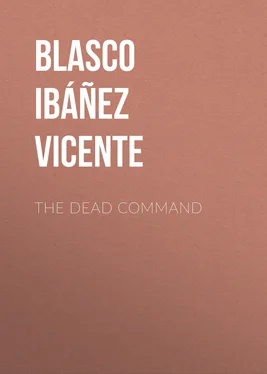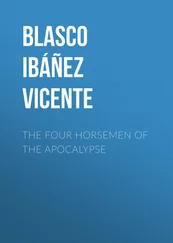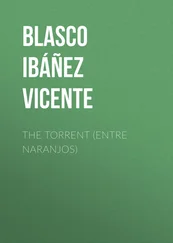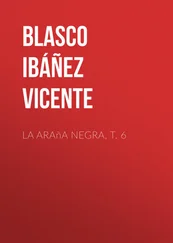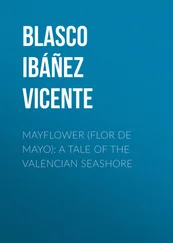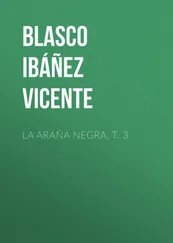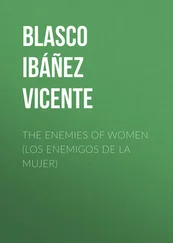Vicente Blasco Ibáñez - The Dead Command
Здесь есть возможность читать онлайн «Vicente Blasco Ibáñez - The Dead Command» — ознакомительный отрывок электронной книги совершенно бесплатно, а после прочтения отрывка купить полную версию. В некоторых случаях можно слушать аудио, скачать через торрент в формате fb2 и присутствует краткое содержание. Жанр: foreign_prose, foreign_antique, на английском языке. Описание произведения, (предисловие) а так же отзывы посетителей доступны на портале библиотеки ЛибКат.
- Название:The Dead Command
- Автор:
- Жанр:
- Год:неизвестен
- ISBN:нет данных
- Рейтинг книги:5 / 5. Голосов: 1
-
Избранное:Добавить в избранное
- Отзывы:
-
Ваша оценка:
- 100
- 1
- 2
- 3
- 4
- 5
The Dead Command: краткое содержание, описание и аннотация
Предлагаем к чтению аннотацию, описание, краткое содержание или предисловие (зависит от того, что написал сам автор книги «The Dead Command»). Если вы не нашли необходимую информацию о книге — напишите в комментариях, мы постараемся отыскать её.
The Dead Command — читать онлайн ознакомительный отрывок
Ниже представлен текст книги, разбитый по страницам. Система сохранения места последней прочитанной страницы, позволяет с удобством читать онлайн бесплатно книгу «The Dead Command», без необходимости каждый раз заново искать на чём Вы остановились. Поставьте закладку, и сможете в любой момент перейти на страницу, на которой закончили чтение.
Интервал:
Закладка:
He managed to exist a few years longer, sometimes in Madrid, or again in the great foreign cities, until at last his administrator brought this period of merry prodigality to an end by sending his resignation, with his accounts and his refusal to continue forwarding money.
He had spent one year on the island, buried, as he said, with no other diversion than nights of gambling in the Casino and afternoons on the Paseo del Borne, sitting around a table with a company of friends, sedentary islanders who reveled in the stories of his travels. Misery and want—this was the reality of his present life. His creditors threatened him with immediate legal process. He still outwardly retained possession of Son Febrer and of other estates derived from his forefathers, but property yielded little on the island; the rents, according to traditional custom, were no higher than in the time of his ancestors, for the families of the original renters inherited the right to farm the lands. They made payments directly to his creditors, but even this did not satisfy half of the interest due. The palace was but a storehouse for its rich decorations. The noble mansion of the Febrers was submerged, and no one could float it. Sometimes Jaime calmly considered the convenience of slipping out of his wretched predicament with neither humiliation nor dishonor by letting himself be found some afternoon in the garden asleep forever under an orange tree with a revolver in his hand.
One day in this frame of mind, a crony gave him an idea as he was leaving the Casino in the small hours of the night, one of those moments in which nervous insomnia causes a person to see things in an extraordinary light in which they stand out clearly. Don Benito Valls, the rich Jew, was very fond of him. Several times he had intervened, unsought, in his affairs, saving him from immediate ruin. It was due to personal liking for Febrer and to respect for his name. Valls had a single heiress, and, moreover, he was an invalid; the prolific exuberance characteristic of his race had not been fulfilled in him. His daughter Catalina, when she was younger, had wished to be a nun, but, now that she was past twenty, she felt a strong desire for the pomps and vanities of this world, and she expressed tender sympathy for Febrer whenever his misfortunes were discussed in her hearing.
Jaime recoiled from the proposition with almost as much astonishment as Mammy Antonia. A Chueta! The idea, however, began to fasten itself upon his mind, lubricated in its incessant hammering by the ever increasing poverty and necessity which grew with the passing days. Why not? Valls' daughter was the richest heiress on the island, and money possessed neither blood nor race.
At last he had yielded to the urging of his friends, officious mediators between himself and the family of the girl, and that morning he was on his way to breakfast at the house in Valldemosa where Valls resided the greater part of the year for relief from the asthma which was choking him.
Jaime made an effort to remember Catalina. He had seen her several times on the streets of Palma—a good figure, a pleasant face! When she should live far from her kindred and should dress better, she would be quite presentable. But—could he love her?
Febrer smiled skeptically. Was love indispensable to marriage? Matrimony was a trip in double harness for the rest of life, and one only needed to seek in the woman those qualities demanded of a traveling companion; good disposition, identical tastes, the same likes and dislikes in eating and drinking. Love! Every one believed he had a right to it, while love was like talent, like beauty, like fortune, a special gift which only rare and privileged persons might enjoy. By good luck, deception came to conceal this cruel inequality, and all human beings ended their days, thinking of their youth with melancholy longing, believing they had really known love, when they had in reality experienced nothing but a youthful delirium.
Love was a beautiful thing, but not indispensable to matrimony nor to existence. The important thing was to choose a good companion for the rest of the journey; to set the pace of the two to the same tune, so that there should be no kicking over the traces nor collisions; to dominate the nerves so that there should be no jar during the continual contact of the common existence; to be able to lie down together like good comrades, with mutual respect, without wounding each other with the knees nor jabbing each other in the ribs with the elbows. He expected to find all these things and to consider himself well content.
Suddenly Valldemosa appeared before his eyes above the crest of a hill, surrounded by mountains. The tower of La Cartuja, with its decorations of green tiles, rose above the foliage of the gardens and the cells.
Febrer saw a carriage standing in a turn of the road. A man alighted from it, waving his arms so that Jaime's driver would stop his horses. Then he opened the carriage door and climbed in, smiling, taking a seat beside Febrer.
"Hello Captain!" exclaimed Jaime in astonishment.
"You didn't expect me, eh? I'm going to the breakfast, too; I have invited myself. What a surprise it will be for my brother!"
Jaime pressed his hand. It was one of his most loyal friends, Captain Pablo Valls.
CHAPTER III
JEW AND GENTILE
Pablo Valls was known throughout all Palma. When he seated himself on the terrace of a café on the Paseo del Borne a compact circle of listeners would form around him, smiling at his forceful gestures and at his loud voice, which was ever incapable of discreet tones.
"I am a Chueta, and what of that? A Jew of the Jews! All of my family come from 'the street.' When I was in command of the Roger de Lauria, being one day in Algiers, I stopped before the door of the Synagogue, and an old man, after looking me over, said: 'You may enter; you are one of us!' I gave him my hand and answered: 'Thanks, fellow-believer.'"
His hearers laughed, and Captain Valls, proclaiming in a loud voice his Chuetan ancestry, glanced in every direction, as if defying the houses, the people, and the soul of the island, hostile to his race through the fanatical hatred of centuries.
His physiognomy revealed his origin. His gray-tinged ruddy side whiskers denoted the retired sea-faring man, but between these shaggy adornments projected his Semitic profile, the heavy, aquiline nose, the prominent chin, the eyes with elongated lids, and pupil of amber and gold according to the play of light, and in which here and there floated tobacco-colored spots.
He had been much on the sea; he had lived for long periods in England and in the United States; and as a result of his contact with those lands of liberty, free from religious tolerance, he had brought back a belligerent frankness which impelled him to defy the traditional prejudices of the island, socially and politically, unprogressive and stagnant. The other Chuetas, cowed by centuries of persecution and scorn, concealed their origin, or tried to make it forgotten through their humble demeanor. Captain Valls took advantage of every occasion to discuss the matter, parading the name of Chueta as a title of nobility, as a challenge which he hurled at the popular bias.
"I am a Jew, and what of that?" he shouted again. "A co-religionist of Jesus, of Saint Paul, of the other saints who are venerated on the altars. The butifarras boast of their ancestors, but they date scarcely further back than yesterday. I am more noble, more ancient! My forefathers were the patriarchs of the Bible!"
Then, waxing indignant over the antipathy to his race, he again became aggressive.
"In all Spain," he announced gravely, "there is not a Christian who can lift a finger. We are all descendants of Jews or of Moors. And he who is not—he who is not–"
Читать дальшеИнтервал:
Закладка:
Похожие книги на «The Dead Command»
Представляем Вашему вниманию похожие книги на «The Dead Command» списком для выбора. Мы отобрали схожую по названию и смыслу литературу в надежде предоставить читателям больше вариантов отыскать новые, интересные, ещё непрочитанные произведения.
Обсуждение, отзывы о книге «The Dead Command» и просто собственные мнения читателей. Оставьте ваши комментарии, напишите, что Вы думаете о произведении, его смысле или главных героях. Укажите что конкретно понравилось, а что нет, и почему Вы так считаете.
